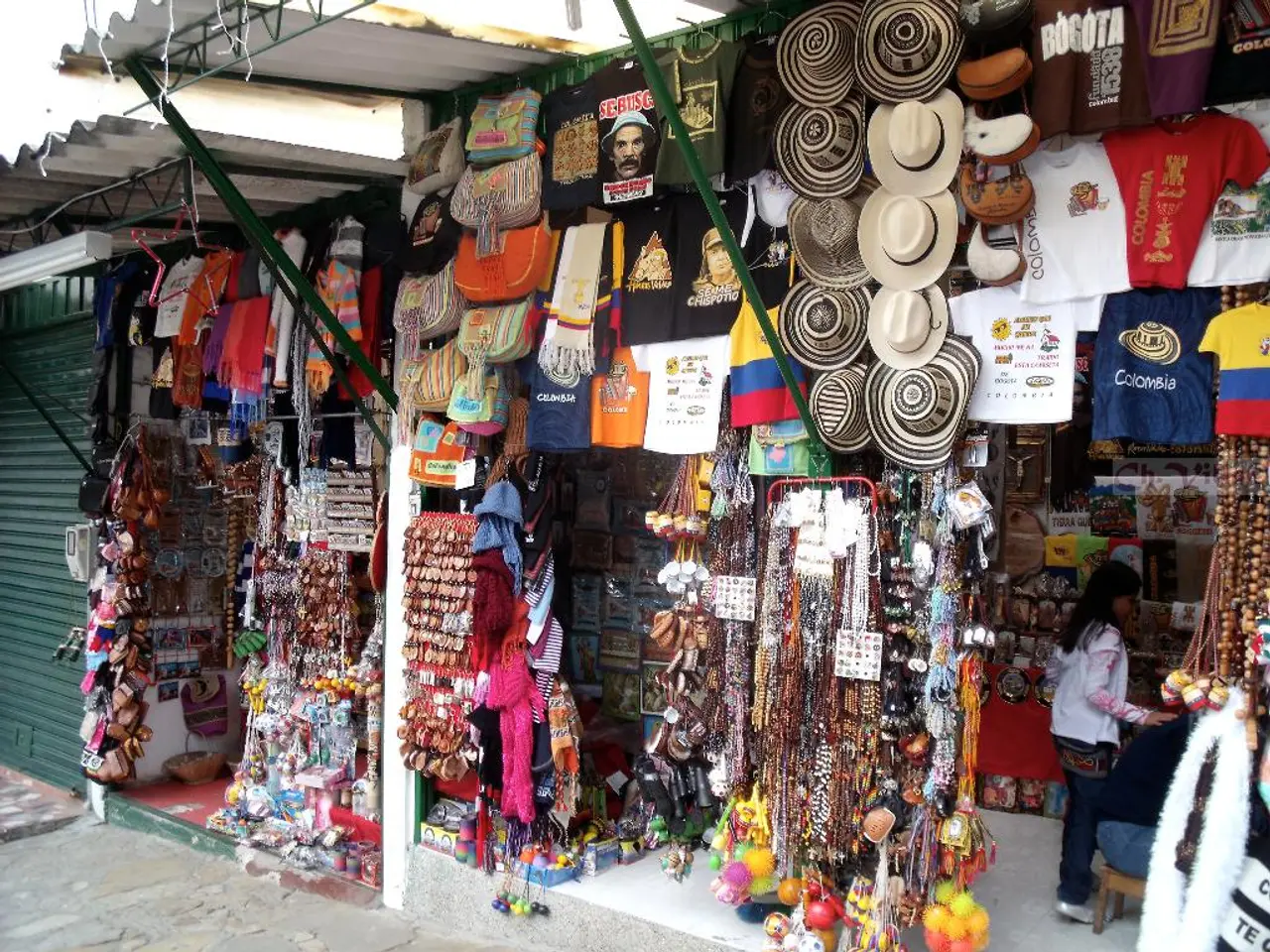QR tags set to replace conventional garment tags
In the ever-evolving world of fashion, QR codes are making a significant impact in the apparel industry. These digital badges are being integrated into clothing labels, modernizing the shopping experience and enhancing consumer engagement.
By scanning QR codes on garments or labels, consumers gain instant access to a wealth of digital content. This rich information includes brand stories, eco-friendly initiatives, warranty registration, styling tips, exclusive offers, and product authenticity verification, particularly for luxury and limited-edition items.
One of the key implementations of QR codes is product authentication and anti-counterfeiting. These digital certificates of authenticity allow customers to verify the legitimacy of luxury or limited products instantly via smartphone, fostering trust and protecting brand integrity against counterfeits. Some brands are even combining QR codes with serialization and embedded NFC chips for higher security.
Enhanced consumer interaction is another significant benefit. By scanning QR codes, consumers can access behind-the-scenes videos, detailed care instructions, styling advice, exclusive discounts, or loyalty programs, fostering deeper engagement and repeat purchases.
Sustainability transparency is another area where QR codes shine. They link to information on sustainable sourcing, repair tutorials, recycling programs, or secondhand marketplaces, helping brands communicate their environmental efforts without adding physical packaging or paper waste.
Supply chain traceability and digital passports are additional advantages. QR codes enable individual garment tracking throughout the supply chain, ensuring transparency and compliance with regulations. This helps retailers manage inventory accurately and supports digital product passports for end consumers.
Moreover, QR codes can streamline inventory management due to their extensive data storage capabilities. They can also simplify the process of trying on clothes for those with dexterity challenges.
The use of QR codes can significantly reduce waste by eliminating bulky tags and the materials associated with them. They can embed all necessary updated information about the clothing, making labels smaller and more readable. This is particularly beneficial for the secondhand clothing market, as it increases the probability that consumers won't cut off the tags.
QR codes can be scanned using smartphones or specialized devices, benefiting individuals with visual impairments. In fact, their use can be compared to post-Covid-19 era QR code use in dining, where they have replaced physical menus.
The apparel industry is considering replacing bulky clothing tags with QR codes. Clothing manufacturers are urging the US Congress and Federal Trade Commission (FTC) for permission to use QR codes as labels. This move aligns with the vision of Stephen Lamar, CEO of the American Apparel & Footwear Association, for "label modernization".
Federal law requires textile and wool products to have labels with fiber content, country of origin, and manufacturer's information. QR codes can fulfill these requirements, offering additional information such as recycling instructions, supply chain information, product recalls, and sustainability practices of the manufacturer.
QR codes can also offer personalized recommendations, exclusive promotions, and interactive content. They might illustrate clothing retailers' strides towards inclusivity. Retailers can use QR codes to provide real-time updates on size availability, further enhancing the shopping experience.
Ralph Lauren, for instance, has already embraced this technology, with over 220 million clothing units featuring QR codes in circulation. The implementation of QR codes not only modernizes the shopping experience but also aligns with modern consumer expectations for transparency, convenience, and authenticity.
The implementation of QR codes in the apparel industry fosters an eco-friendly lifestyle by reducing waste from bulky tags and offering sustainability information through digital platforms. This aligns with the modern fashion-and-beauty sector's focus on transparency, inclusivity, and consumer engagement.
As QR codes link to detailed product information, including warranty registration, care instructions, and styling tips, they are revolutionizing the fashion industry, transforming it into a more tech-savvy and interactive space.




